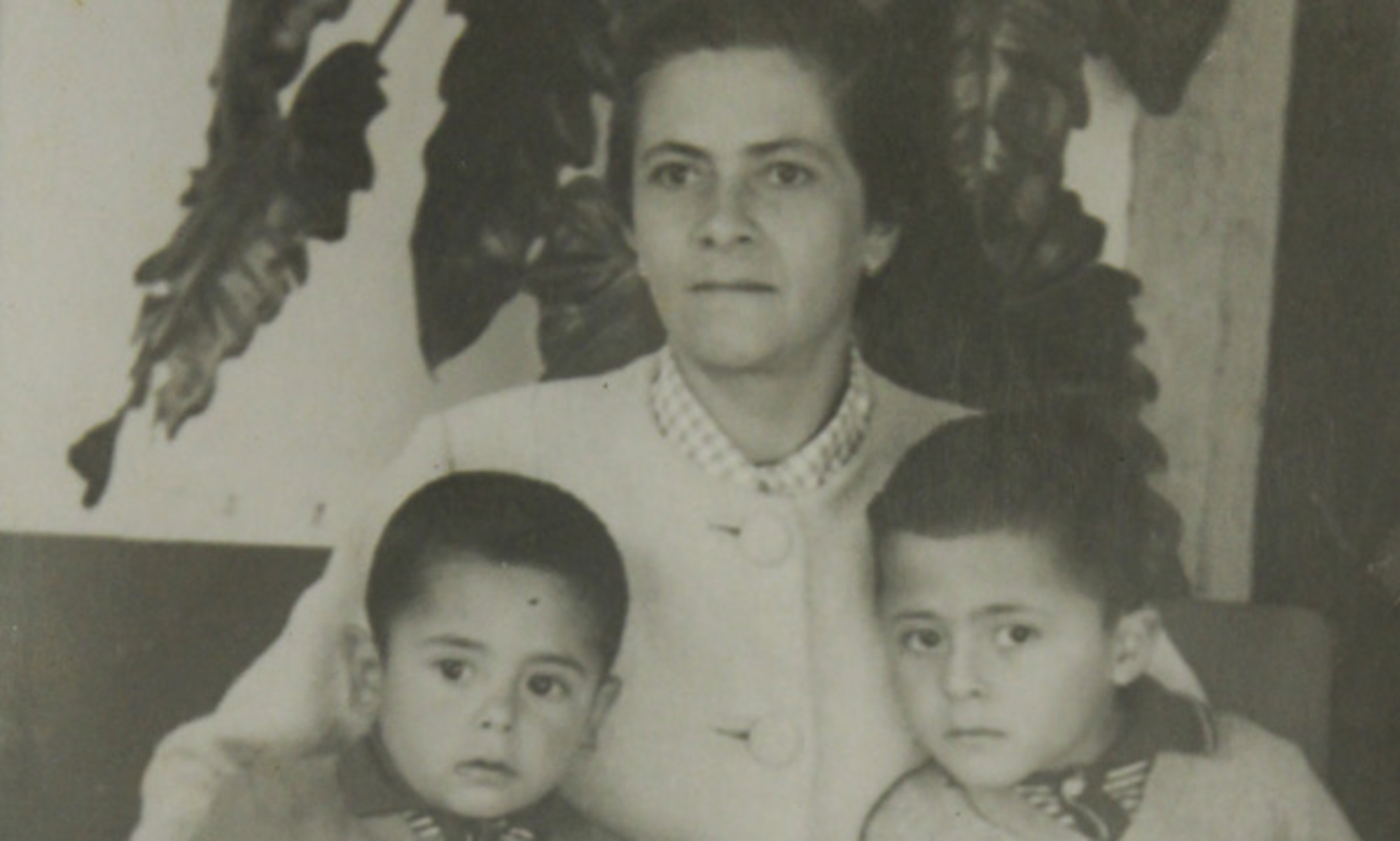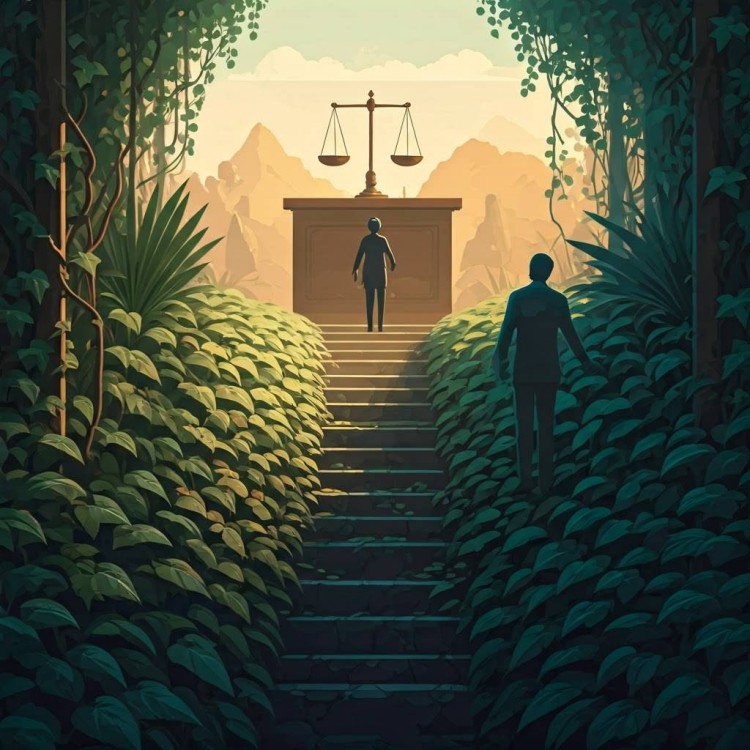

‘Del otro lado del jardín’ by Carlos Framb
- Title ‘Del otro lado del jardín’ by Carlos Framb
- Author Carlos Framb
- Year 2009
- Language Spanish
- Tags Death Outside the Law Intimate Portraits of Death Friendship Memoir
- Legislative context Constitutional Court Sentence C-239-97 decriminalizing euthanasia, 1997 (Colombia)
- Author of entry Carlos A. Pittella
On October 20, 2007, after assisting in his 82-year-old mother Luzmila Alzate’s death at home with an overdose of morphine and sleeping pills, the Colombian poet Carlos Framb attempted suicide but failed. Instead, he woke up at a hospital to find himself detained and accused of aggravated homicide. A legal saga ensued, with Framb’s charges being eventually lessened to assisted suicide and, in July of 2008, dropped by the Superior Tribunal of Medellín. Framb’s 2009 memoir Del otro lado del jardín does more than describe his months of legal proceedings: it also recounts his mother’s religious upbringing and the slow process of persuading her that assisted dying could be a merciful rather than sinful act. The book portrays the mother-son friendship and discusses the deaths of close ones that serve as points of reference; these include Luzmila’s own mother, who died of an excruciating skin cancer, and Framb’s friend Ebel Botero, who died while drafting ‘A Brief History of Suicide’ – an essay that Framb himself recreates and presents as a book inside the book. This nested structure and a mix of voices enrich Framb’s first-person account, resulting in a hybrid text with poems, correspondence, dialogues, and excerpts of court proceedings – including an edited transcription of the appellate court decision that eventually absolved Framb. The memoir also serves as a snapshot of the debate on assisted dying in Colombia in 2009, consolidating the position of prominent associations and influential names; as Framb reports in the book, he received various gestures of support while in jail, such as a letter from the Corporación Cultural Estanislao Zuleta, an organization dedicated to the promotion of democracy and critical thinking, and a phone call from Judge Carlos Gaviria, author of the landmark Sentence C-239-97 that decriminalized euthanasia in Colombia.
In 1997, the Colombian Constitutional Court exempted from wrongdoing any doctors who assisted in the death of free-willing, terminally ill patients, and urged Congress to regulate the topic of dignified death. Although euthanasia was effectively decriminalized, further expansions of the constitutional right-to-die would only be issued as of 2015, through a series of sentences and resolutions. Thus, Framb’s 2007 case fell into a legislative vacuum. Framb knew his action was illegal – aiding in his mother’s death was a prosecutable crime which his own brother Iván could have brought to court, though Iván refused to do so (at the time, assisted suicide was punishable in Colombia with 1-2 years or prison and mercy killing with 1-3 years). As he was not granted bail, Framb spent the first five months of his legal proceedings imprisoned. On April 8, 2008, in a first-instance court decision, the 23rd Penal Court of the Circuit of Medellín absolved Framb from the accusation of aggravated homicide but condemned him for assisted suicide, while ordering Framb’s release. The prosecution appealed, so Framb remained in conditional liberty pending the appellate court decision; only on July 14, 2008, the Superior Tribunal of Medellín unconditionally freed Framb by dropping the accusation of assisted suicide (Sentence 05-001-60-00206-2007-19739). Framb’s case received a lot of exposure and scrutiny, both before and after his memoir was published, being often cited in the media and in legal articles as a reminder of how Colombia still needed to clarify the guidelines for assisted dying. A vocal advocate of self-determination in death, Framb has been invited as a keynote speaker by various organizations, including Derecho a Morir Dignamente Colombia (a member of the World Federation of the Right to Die Societies) in 2009, and the Superior Tribunal of Medellín in 2023. First published in 2009 by Editorial Planeta, Framb’s memoir was republished in 2015 by Aguilar, a Penguin Random House label. A feature film based on Framb’s book and by the same title was launched in October 2024.
Suggested citation
-
‘Del otro lado del jardín’ by Carlos Framb, Assisted Lab’s Living Archive of Assisted Dying, 27 January 2025 <link>
Reviews
- Míriam Cotes Benítez, ‘Del otro lado del suicidio’, Boletín Cultural y Bibliográfico, 2011 → publicaciones.banrepcultural.org
- Camilo Jiménez, ‘Del otro lado del jardín, de Carlos Framb’, El ojo en la paja, 2009 → elojoenlapaja.blogspot.com
Media citations
- ‘Saltar el muro’, NPR – Radio Ambulante, 2019 → radioambulante.org
- ‘Carlos Framb: Del otro lado del jardín’, Revista Corónica, 2012 → revistacoronica.com
- ‘Carlos Framb’, Crónica del Quindío, 2009 → cronicadelquindio.com
- ‘Carlos Framb: “La vida vale la pena sólo si es deseada”’, Cromos, 2009 → elespectador.com
- ‘Historia de un suicidio asistido’, Semana, 2009 → semana.com
Interest Group citations
- ‘Muerte digna – Derecho Humano’ [event celebrating the 30 years of DMD Colombia, featuring Framb as keynote], Fundación Fundación Pro Derecho a Morir Dignamente, 2009 → youtu.be
- Corporación Cultural Estanislao Zuleta, 2007 Letter to Carlos Framb, transcribed in Framb’s ‘Del otro lado del jardín,’ 2009
Legal and Paralegal citations
- Leonardo Medina Patiño & Margarett Paola Hernández, ‘Análisis jurídico de la responsabilidad patrimonial de la Nación-Congreso de la República de Colombia por omisión al no legislar sobre la práctica de la eutanasia’, Revista Evolusciente, 2024 → revolusciente.com
- Diego Valadés, ‘Eutanasia. Régimen jurídico de la autonomía vital’, UNAM – Instituto de Investigaciones Jurídicas, 2010 → repositorio.unam.mx
Related Media
Article
Carlos Framb, ‘One Suicide (Assisted) Almost Becomes Two’, The New York Times Magazine, 2015
- Carlos Framb, ‘One Suicide (Assisted) Almost Becomes Two’, The New York Times Magazine, 2015 nytimes.com ↗
Related Archival Entries
'Del otro lado del jardín' by Daniel Posada

Daniel Posada (director and screenwriter), Ignacio del Moral (screenwriter)
The poet Carlos Framb wakes in a hospital bed, handcuffed and accused of homicide. He had attempted suicide after assisting his mother Luzmila Alzate to die, which he claims was an act of love. Inspired by Framb’s 2009 memoir by the same title, but with notable differences, this 2024 film turns a real story into a courtroom drama about the individual rights to death and to abortion.
'La luz difícil' by Tomás González

Tomás González
Suffering unbearable pain after a traffic accident left him paraplegic, Jacobo has decided to die in Oregon, where a doctor is willing to assist him; in the meantime, his Colombian-immigrant parents anxiously await news in NYC. Told from the perspective of the painter David, Jacobo’s ageing father, González’s 2011 novel has sparked discussions about assisted dying in Colombia and beyond.